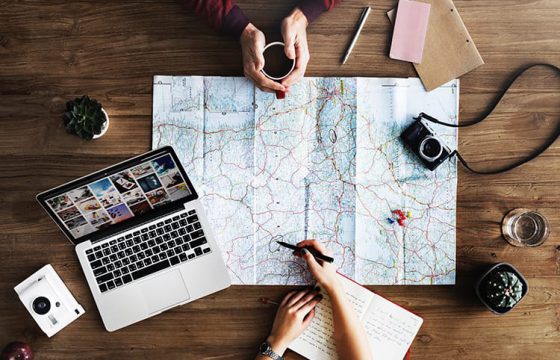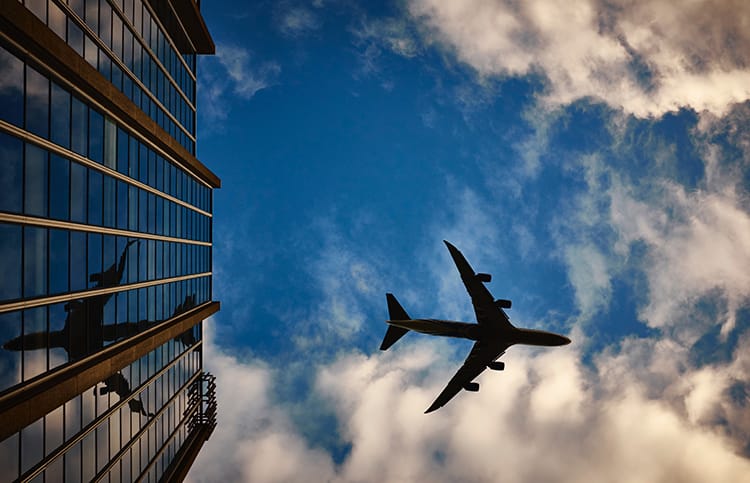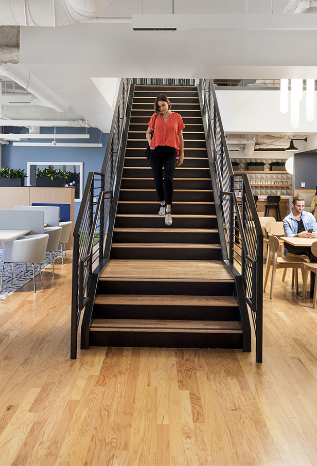Travel is an increasingly important part of working life in today’s globalised world. We look at ten simple ways to keep business trips smooth and simple.
We live in the internet age, dominated by virtual meetings and digital nomadism. Most people work with some degree of location flexibility, and remote working is set to dominate in the near future. You’d be forgiven, then, for assuming that the age of the business trip was coming to an end – that physical travel to far-flung destinations to attend conferences, meet clients and connect offices was a thing of the past. However, nothing could be further from the truth.
Corporate travellers make around 480 million business trips per year, which it’s tempting to put down to a waning tendency among older, more experienced professionals. However, while the average experienced business traveller takes 12 corporate trips per year, the figure is 14 for their younger, less experienced counterparts. What’s more, the sector is growing, and it’s being fuelled by a new generation; millennials are set to take 20 percent more business trips in the next year than their seniors.
And of course, with business travel comes a business traveller’s lifestyle. Research has found that business travel increases stress, reduces the amount and quality of sleep, and encourages an unhealthy approach to diet and exercise. The logical solution to these problems would be to stop travelling for work altogether, but statistics show that this is unlikely to be feasible any time soon, with a consistent year-on-year increase in business travel recorded since 1980. How, then, can workers reduce the impact business travel has on their lives? We explore ten simple, practical tips to make the best of corporate travel, and turn it into a positive experience.
Ask your employer to make the arrangements
Any employer sending teams or individuals on trips for work purposes, be that across the same city or on the other side of the world, should make the arrangements for them. Hotels, flights and cars should be pre-booked and pre-paid, so that employees can focus on the job at hand, relax and avoid unnecessary stress.
Embrace technological solutions
Employers should also choose hotels and airlines that minimise stress. For example, many business hotels now allow online check-in and mobile door unlocking, so travellers don’t need to manually use a check-in desk. Going further, AI assistants such as 30SecondsToFly allow for smart, stress-free bookings and amendments.
Allow for personal time
One of the ironies of business travel is that in spite of being away from your desk, it can feel even more like you’re working non-stop. Make a conscious effort to relax once conferences and meetings are done for the day, and consider adding a day on to the end of the trip to de-stress and mentally process the work you’ve done.
Make it a holiday
As an extension of the above, particularly if you’re travelling to an exotic location, use some of your time (or add on extra time) to see the sights, experience local culture, and derive some personal benefit from the trip aside from professional gains. After all, travel should be rewarding and enjoyable, as well as productive.
But not that type of holiday
Conversely, there’s a temptation to really cut loose on business trips, especially if your expenses are paid. However, drinking heavily and getting insufficient sleep will take a huge toll on your body, and are simply unsustainable for regular business travellers. Indulge only as much as you would at home on a normal workday.
Make advance reservations
On the subject of food, healthy eating is a must to ensure you stay sharp and sleep well. Book good-quality restaurants in advance, so you’re not tempted to binge on snack food, and don’t have to deal with the stress and selection anxiety of picking somewhere on the fly.
Use your network
If you’re travelling for an event or conference, make sure all your contacts know you’ll be going by keeping your social media profiles updated. That way, you’re bound to run into one or two familiar faces, especially after you’ve attended a few similar events as your career progresses.
Travel as a team
Loneliness can be one of the toughest aspects of business travel. Encourage your employer to send teams of three or more people on trips together. Having company will stop you indulging in lazy, unhealthy habits, and it will also reduce the stress factor of the event or meeting you’re travelling to attend.
Make sure it’s necessary
Business trips shouldn’t be taken on a whim. Make sure physical travel is really essential by checking if a meeting could be conducted virtually, and if a conference offers real professional value beyond the vague notion of networking potential. Pointless travel is deflating, and a waste of employer and employee resources.
Stay positive
By following these tips, you should be able to make business trips something to look forward to. Once you know a trip can’t be avoided, try to see the advantages and plan out your time to incorporate sleep, exercise and cultural experiences. That way, you’ll be able to take it all in your stride, even if there are unexpected complications or delays.
At the end of the day, no matter how important the work is, the secret to a successful business trip is to put yourself first. This will maximise value for both you and your employer and will ensure that work-related travel is an efficient use of time, money and human resources.


